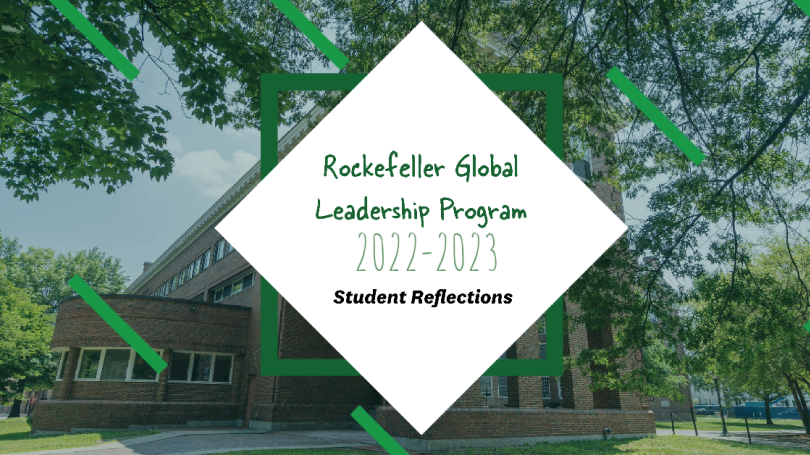
- Public Policy
- Leadership
- Funding
- News & Events
- About the Center
Back to Top Nav
Back to Top Nav
Back to Top Nav
Back to Top Nav
One thing that has always intrigued me about how we've built our world system is the way in which we facilitate global dialogue. I've always been fascinated by how such dialogue is able to function — particularly as everyone approaches the conversation with differing experiences and cultural backgrounds. I've always wondered how, for example, I would be able to relate to other individuals from my generation around the world. While I believe that Gen Z is able to facilitate a certain global conversation by means of the internet and generation-specific online lingo, I worry about how much of our conversation is centered around things that have meaning. I worry that we don't spend enough time speaking about our shared human experiences, as opposed to the time we spend generating random content or perpetuating meme culture. I'll be the first to admit that I enjoy a tasteful meme or two as I'm always in awe of how my generation is so adept at using memes to spark conversation and spread ideas. I wonder, though, how much of the global conversation we are devoting to finding that common ground and understanding of what makes us undeniably human — across all cultures and experiences.
For example, I've often wondered how I am supposed to find common ground with someone that is my age who may have grown up in Syria during the civil war. This individual would be coming into the conversation with a completely different set of experiences than I would — and inevitably these experiences would have shaped their perspective and philosophy on life. Though I've never been in a conversation like this before, I have spent some time having conversations, those in the Rockefeller Global Leadership Program included, in which I've been able to speak to people from different backgrounds. Inevitably, these people see the world a bit differently than I do, but what I've learned is that at the end of the day, all people really want to be able to do is express their love — their love for others, for nature, for their religion. This is why matters of international peace and political stability are so important, because if we are not able to guarantee people the basic right to safety, then there can be no love. After all, we all share our humanity in common. As such, it is necessary that we approach every conversation we have with empathy and the knowledge that all anyone truly wants is to love and be loved in return.